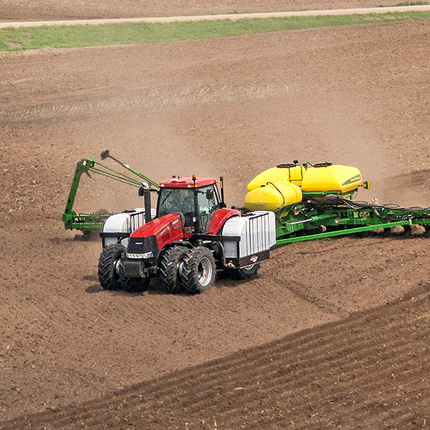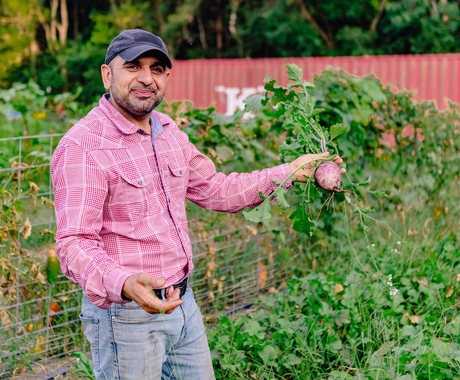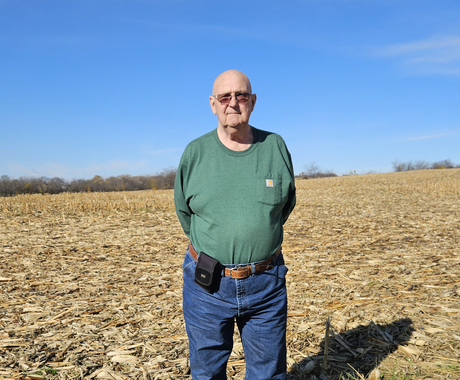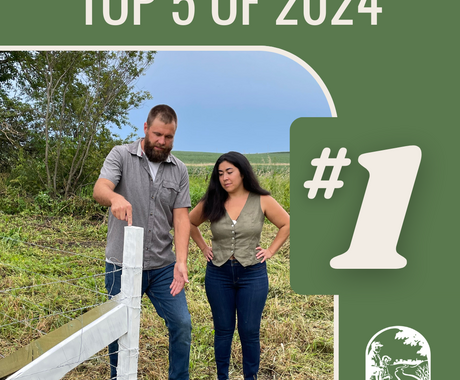Wyatt Fraas, our Farm and Community Assistant Director, has spent 20 years advising landowners and beginning farmers on farm asset and business transfer. Recently, we posted a blog for retiring farmers. Here is another interview with Traci Tiernan of FarmandRanchJobs.com for beginning farmers. For her story, click here.
I just graduated college and I want to start farming. Is it feasible? What are my options?
This is a time of tremendous opportunity in farming and ranching. Commodity production (undifferentiated crops and livestock sold into “commodity markets”) has minimal profit margin, unpredictable price swings, and many risks for a small, uncapitalized, inexperienced farmer. That type of farming is best entered with substantial farming-family support.
Alternative crops and high value markets offer more profit potential and lower risk for new farmers. ATTRA has a wide range of publications on such production and marketing of crops and livestock.
How do I find a retiring farmer? Are there resources available?
Most land transfers happen out of public view, between people who have some connection. You want to know when a landowner’s children decide not to come home to farm, or when a health condition forces a change in farming activity. You need a network to learn all this at the earliest possible stage, so you can introduce yourself as a solution to the situation.
You need networks of people to accomplish this well – your family, business and education contacts all know people who know people. You need to tell all of your contacts what you’re looking for. Those who know you and your commitment will be pleased to have a hand in your success.
Beginners won’t be able to outbid large, established landowners, so they need to appeal in other ways. You can offer a chance to keep the farm in operation, to continue the legacy of the farm. You can keep the farmstead alive, instead of plowed over, so family can continue to visit where the family history occurred.
You can bring a new family to the community, to invigorate the church, school and town businesses. And you can partner with the senior landowner to build the business to greater success together as you, perhaps, bring livestock back to the farm or introduce new enterprises to the existing operation.
Aside from your networks, a few other resources can help. Some 30 land matching programs list landowners looking for new farmers. Trade associations and commodity groups are full of senior landowners. ATTRA lists organizations that sponsor farm tours and workshops where you can see what works and meet others doing what you want to do. Some states have support networks, such as the Nebraska Network for Beginning Farmers and Ranchers.
Is it wise to work for the retiring farmer before the transfer?
The landowner has intimate knowledge of the farm and how to work it. The senior farmer also knows the local input suppliers, markets and neighbors. You could save lots of time and limit your risks by learning these things alongside the landowner.
A probationary period of employment only, where you and the landowner learn about each other, is a wise step. However, if you want to take over management of the farm business or own its assets, you should have a transition plan that moves beyond simple employment quickly and that makes substantial progress toward management and ownership within five years.
How will I know if we are a good match?
You and the senior farmer can compare your goals, priorities and expectations. If you can have conversations, can respect each other’s differences, and find trust in each other, you may each be able to commit to a long-term relationship. You don’t have to be totally compatible; remember, even family members can have conflicting personalities. But they also have shared goals and commitment to work together.
Are there resources, like loans, that will assist me in buying a farm?
There are no grants (free money) of financial consequence for farm startup and operation, so funding for a farm will have to come from savings, bootstrapping, investors/partners or loans. A discussion of financing strategies is on our website.
USDA Farm Service Agency is where many beginners find financing. It has the lowest interest rate and programs specifically for beginners, women, veterans and minorities. Other lenders may also be willing to deal with the extra risk that beginners present, and would eventually be the “graduation” goal for FSA borrowers.
Farm ownership isn’t the only way to farm, however. Renting land is a viable option and represents a lower cost than ownership. Rental or temporary land access may open up other options. Vacant urban lots, unused commercial property, or acreage landowners may all be places to start farming. Opportunity may lie in being creative.
One beginner located small pasture parcels that larger farmers didn’t want to mess with. He sub-rented these parcels, then hauled water and used temporary fence to move his cattle herd from place to place. Landowners noticed his hard work and care of these properties, and in a few years, offered full farms to him to rent.
Should we have a plan set in stone or go by a verbal agreement?
Farmers and ranchers value the honor of handshake agreements. However, our memories fade, so it’s always a good idea to back up the handshake with a written understanding of what was agreed to and when things will happen.
A simple written plan can avoid disagreements and misunderstandings that could damage the relationship. But consider that a plan is a guess about future conditions – when personal or economic conditions change, the plan can change, too.
How can I guarantee the retiring farmer won’t change his mind?
You can’t. Nor can you guarantee that you won’t change yours.
A testing period before making an agreement will start to reduce the risk of a mistaken commitment to work together. A written agreement with a timeline can remind you both about what you want to have happen and when it will happen (This document has a template for such a plan: Successful Farm & Ranch Transitions, by Dave Goeller).
The agreement should also describe how you will resolve disagreements and how you will dissolve the contract between you. If either of you invest in the farm in ways that are hard to liquidate, that investment should be identified and its disposition should be described.
If I don’t totally agree with the retiring farmer’s operation plans, how do I suggest change? Or is it better to make changes after the transfer?
You should discuss ideas, goals and priorities before entering into an agreement with the landowner. Those conversations are important to how well you work together and whether you each can complete your portions of a transition plan.
A trial period of employment is a good idea to learn more about each other and to learn if your ideas could indeed actually fit on this farm. Don’t forget that the senior farmer is still the decision maker until your plan designates that you assume substantial management authority. Even then, any changes should not jeopardize the farm assets or viability, for both your sakes.
As testing steps, you can try your idea on a small scale, or arrange to be solely responsible for a new enterprise on the farm, so it becomes an area where you are free to make your own decisions and demonstrate your abilities and good judgment.
Who decides the worth of the farm?
If you’re talking about transfer of hard assets, it’s a good idea to agree on valuation.
That may be a formal process with an appraiser, or it may be less formal, as in watching auctions or getting lenders’ opinions of similar property. The IRS will be watching real estate sales for below-market sales or interest rates and can assess penalties, so a valid valuation of property is important.
If I disagree with the deal offered by the retiring farmer, how do I change his mind?
At the agreement stage, everything is negotiable. But both you and the senior farmer need to enter the discussion with goals firmly in mind.
You can discuss those and the strategies you want to use to get there. If you can’t agree to pursue your goals alongside your prospective partner, there is no hope of getting to the next stage – agreeing on how you’ll manage the business to reach those goals.
But you can negotiate. There are always multiple ways to get to a goal, so if you know what the landowner wants, you can propose options to achieve that in ways that suit your goals as well. For example, if you want to earn equity in equipment, but the senior farmer isn’t willing to share ownership of important equipment like a high-horsepower tractor, work on owning the manure spreader. Those can’t be rented and can be used to generate income from neighbors. Or invest in a hay baler, which similarly can generate income from custom farming.





